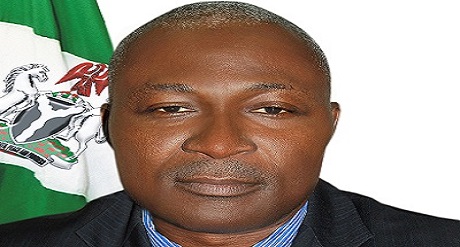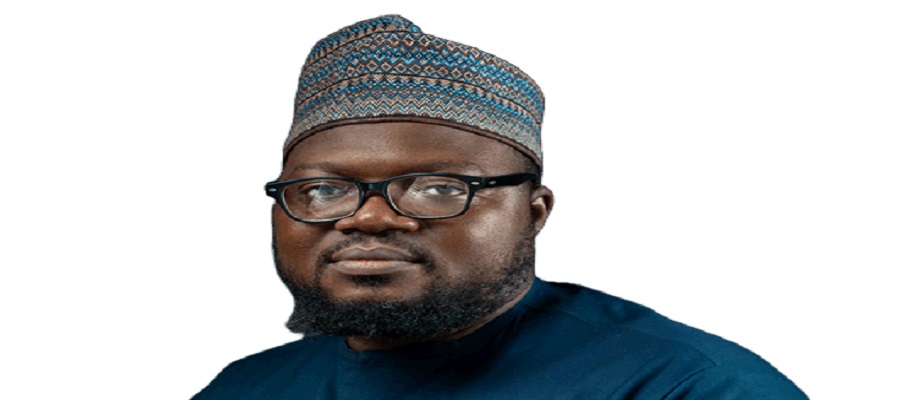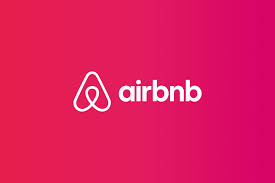General News
Dikki seeks Reform of BPE for Economic Growth

Benjamin Dikki, director general of the Bureau of Public Enterprises (BPE), has pledged that the organisation will always support any initiative by the private sector to grow the nation’s economy.
He explained that the whole essence of the reform and privatisation programme of the Federal Government was to galvanize private sector participation and engender the growth of small and medium scale industries in the country.
Dikki, who spoke through Yununa Jackdel Malo, acting director, Oil and Gas Department of the bureau, at the opening ceremony of the ninth edition of the Abuja International Trade Fair, in Abuja, said the bureau accepted to partner with Abuja Chamber of Commerce, Industry, Mines and Agriculture, because there is the need to make the nation’s capital city a business hub, more so as the city is equidistant to all geopolitical zones of the country.
He said the bureau would always support the effort to harness the entrepreneurial spirit of Nigerians and change the image of commerce in the Federal Capital city.
He noted that the trade fair provided an opportunity for investors and prospective investors to network and explore investment opportunities which the sector reforms and privatization have provided.
The Director General explained that through the various reform efforts, the Bureau has helped to turn the economy of the nation around, in line with the Transformation Agenda of the Federal Government.
He said there had been reforms in various sectors including telecommunications, ports, financial sector, tourism and so on championed by the Bureau. He enjoined visitors to the fair to visit the Bureau’s stand and avail themselves of the investment opportunities that abound from the reform initiatives.
Dr. Solomon Nyagba, president of Abuja Chamber of Commerce, had earlier in his welcome address, commended the Federal Government on the reform initiatives which he said are impacting positively on the citizenry. According to him, “business, which is the hallmark of the organised private sector can only thrive in a conducive environment.”
General News
Nigerian Military Makes History with Africa’s First Attack Drones, Bombs

Nigerian Military, in partnership with Briech UAS, a communications company, has unveiled the first and largest indigenous attack drones and bombs in Nigeria and Africa.

Briech UAS, alongside the Nigerian Army, demonstrated these attack drones and bombs at the company’s headquarters in Abuja on Wednesday.
General Christopher Musa, chief of Defence Staff (CDS), hailed the initiative as a significant milestone in Nigeria’s progress toward self-reliance in defence technology and a crucial step in enhancing national security.
Musa highlighted the importance of developing combat drones, particularly for intelligence gathering. He pointed out that these drones would play a pivotal role in addressing complex and asymmetric security threats.
“These force multipliers will greatly enhance the operational effectiveness of our military, especially in a world where global politics complicate the procurement of advanced military hardware,” he stated.
“Countries that do not produce these solutions face bureaucratic and diplomatic challenges when acquiring essential platforms. We are directly addressing this challenge.
“If we do not produce what we need, we will be at the mercy of others, even if we have the financial resources to acquire them.
“By manufacturing these drones locally, Nigeria reduces dependence on foreign resources, ensures faster acquisition, and strengthens its ability to respond to security threats swiftly.
“With the brilliant minds we have, particularly among our youth, we can create outstanding technology that competes on a global scale,” Musa said.
Plateau Governor Caleb Mutfwang underlined the importance of supporting indigenous products for Nigeria’s growth.
He stressed that the drones would be vital in safeguarding the country’s sovereignty, particularly in Plateau State, where some of these technologies have already been deployed to enhance the efficiency of ground forces.
Mutfwang also revealed that his state was collaborating with local bomb and drone manufacturers like Briech UAS to counter insurgency with domestically produced weapons.
“As a nation, we made a mistake by allowing non-state actors to acquire capabilities nearly on par with state actors,” he stated.
“We’ve entered into a partnership that has led to the deployment of these facilities in our state. We’ve seen substantial improvements in the effectiveness of our security forces.
“It was a mistake to let non-state actors gather capabilities that could almost overpower legitimate state forces. We must correct that imbalance.
“We must ensure no one within our borders has capabilities that surpass or match those responsible for protecting our national sovereignty,” he added.
Earlier, Dr Bright Echefu, chairman of Briech UAS, noted that insurgent groups like Boko Haram and ISWAP have been using commercial drones for reconnaissance and attacks.
“These drones have been used to track and attack our troops, coordinating ambushes and executing crude aerial strikes,” he said.
General News
FG Trains 49 Persons with Disabilities in IT Skills

Digital Bridge Institute (DBI), has trained and graduated 49 persons with disabilities (PWDs) from a nine-month IT programme aimed at bridging Nigeria’s digital divide.

The graduates, comprising 24 from DBI’s Lagos campus and 25 from its Kano campus, acquired industry-recognized certifications and essential digital skills to enhance their participation in the tech sector.
The IT Bridge Academy, a federal government initiative designed to support PWDs, provides specialized training to help them access opportunities in the modern digital economy.
The programme was implemented in partnership with Sightsavers International and is only the second of its kind in Africa, after a similar initiative in Kenya.
At the Lagos graduation ceremony, David Daser, president and CEO, DBI, represented by Viola Askia-Usoro, institute’s head of special duties, described the initiative as a major step towards digital inclusion.
“This academy is not just about education; it’s about creating opportunities for PWDs to realize their full potential,” he stated, highlighting the programme’s role in tackling stigma, discrimination, and limited access to training.
Daser urged the graduates to advocate for digital accessibility and called on public and private sector stakeholders to support inclusive initiatives that empower PWDs in Nigeria’s technology space.
Speaking on behalf of the graduates, cohort 2 class governor Amos Adegboyega acknowledged the challenges they faced during the programme and expressed gratitude for the support received, saying, “There are abilities in disability, and this training has given us the confidence to achieve our dreams.”
General News
Airbnb Community Fund Donates ₦13 Billion to Nonprofits Worldwide

In a bid to strengthen communities worldwide, Airbnb has announced the recipients of its annual Community Fund grants for 2025. This year, the initiative will distribute over ₦13 billion ($8.5 million USD) to more than 160 nonprofits across 30 countries globally.

Among the beneficiaries are six organisations in Africa, where efforts focus on economic empowerment, environmental sustainability, and combating abuse and exploitation.
Launched in 2020, the Airbnb Community Fund is a ₦153 billion ($100 million USD) initiative aimed at directly supporting communities and residents globally. By 2030, the Fund is projected to disburse its full ₦153 billion commitment.
Each year, Airbnb collaborates with local hosts to nominate and select nonprofit organisations for funding. Hosts act as key contributors, leveraging their deep understanding of community needs to guide impactful donations.
African Recipients Leading Change
This year, funding was allocated to nonprofits tackling pressing social issues. Among the African beneficiaries are:
Digify Africa, South Africa: Empowering young people with digital skills for economic growth.
AfriLabs, Nigeria: Supporting entrepreneurs with funding and networks for scaling businesses.
Children of Africa, Kenya: Advocating for vocational training and education for underprivileged girls.
Global Give Back Circle, Kenya: Providing vulnerable girls and young women with opportunities for transformative community impact.
Qhakaza Mohare, Chief Operating Officer of Digify Africa, praised Airbnb’s contribution, emphasizing its role in expanding initiatives and creating sustainable impacts in underserved communities.
Global Impact
To date, the Airbnb Community Fund has distributed over ₦55 billion ($36 million USD) to nonprofits in nearly 70 countries, with hosts driving much of its success.

 Broadcasting3 days ago
Broadcasting3 days agoDStv Revenue Plunges as MultiChoice Loses Nearly 4m Subscribers

 News2 days ago
News2 days agoNIPSS Projects Petrol Prices to Hit ₦750/Litre Before Year’s End!

 Telecom3 days ago
Telecom3 days agoNCC Asks Consumers to Monitor Data Usage to Authenticate Consumption

 Telecom3 days ago
Telecom3 days agoPhone Theft: AMCODET Urges Mandatory Registration @ Point of Purchase

 E-Financial2 days ago
E-Financial2 days agoFidelity Bank Reports N385.2Bn Pre-Tax Profit for 2024

 News3 days ago
News3 days agoTikTok Sale Deal Expected Before April 5 Deadline – Trump

 E-Business2 days ago
E-Business2 days agoNIMC Says NIN Mandatory to Government Loans

 E-Financial3 days ago
E-Financial3 days agoFidelity Bank Records a 210.0% Growth in PBT to N385.2bn



























